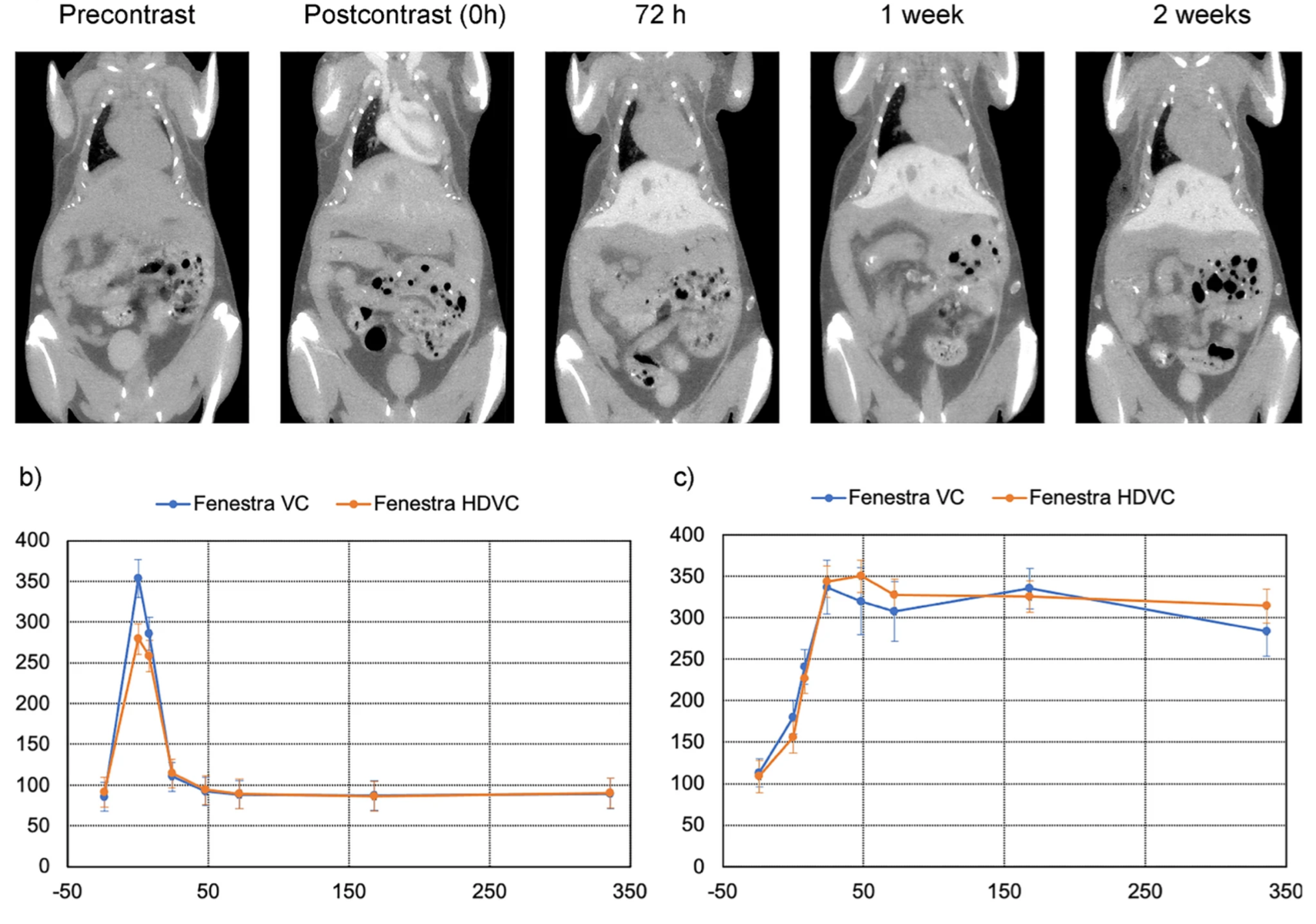Eye Tracking as a Cost-Effective Tool in Neuroscience Research
Almost all animals with functional vision exhibit a variety of eye movements. These movements allow compensation for shifts in the visual scene and enable tracking

Contrast-enhanced in vivo microCT imaging is a powerful research method for enhancing soft tissue X-ray contrast, delineating soft tissue structures for PET or SPECT volume of interest analysis, quantifying liver tumor burdens through the negative contrast effect, and analyzing vascular anatomy or angiogenic volumes in 3D.
A recent publication in Nature Scientific Reports compared Fenestra HDVC to Fenestra VC for high resolution imaging of blood pool and liver tumor at low injection dose. The study shows Fenestra HDVC provides a strong microCT enhancement following low injection doses of 0.2 ml. The contrast in livers was retained for at least two weeks and livers could be removed, placed in formalin and imaged ex vivo.
The contrast enhanced livers following IV admin of Fenestra HDVC can also be removed after 24 hours, placed in formalin and imaged enabling researchers with access to specimen ex vivo microCT scanners to conduct in vivo research.
The authors of the study show that Fenestra HDVC enhanced micro-CT imaging could be used to accurately measure tumor volume and monitor changes in tumor size over time. These techniques could potentially be used to evaluate the efficacy of new treatments and therapies for liver cancer.
Fenestra HDVC also has a prolonged residence time in blood pool before uptake into hepatocytes making it a useful agent for cardiac gating studies, and enhancing the contrast of heart for co-registration of PET or SPECT images with CT. In addition, this blood pool effect can be useful for measuring total blood volume within tumors and assessing effectiveness of anti-angiogenic therapies.
Full Citation
Tan, M.J., Fernandes, N., Williams, K.C. et al. In vivo micro-computed tomography imaging in liver tumor study of mice using Fenestra VC and Fenestra HDVC. Sci Rep 12, 22399 (2022). https://doi.org/10.1038/s41598-022-26886-5
Almost all animals with functional vision exhibit a variety of eye movements. These movements allow compensation for shifts in the visual scene and enable tracking

Medilumine is pleased to announce a new distribution partnership with NanoPET Pharma through its Viscover brand. Medilumine is now an authorized distributor of the full